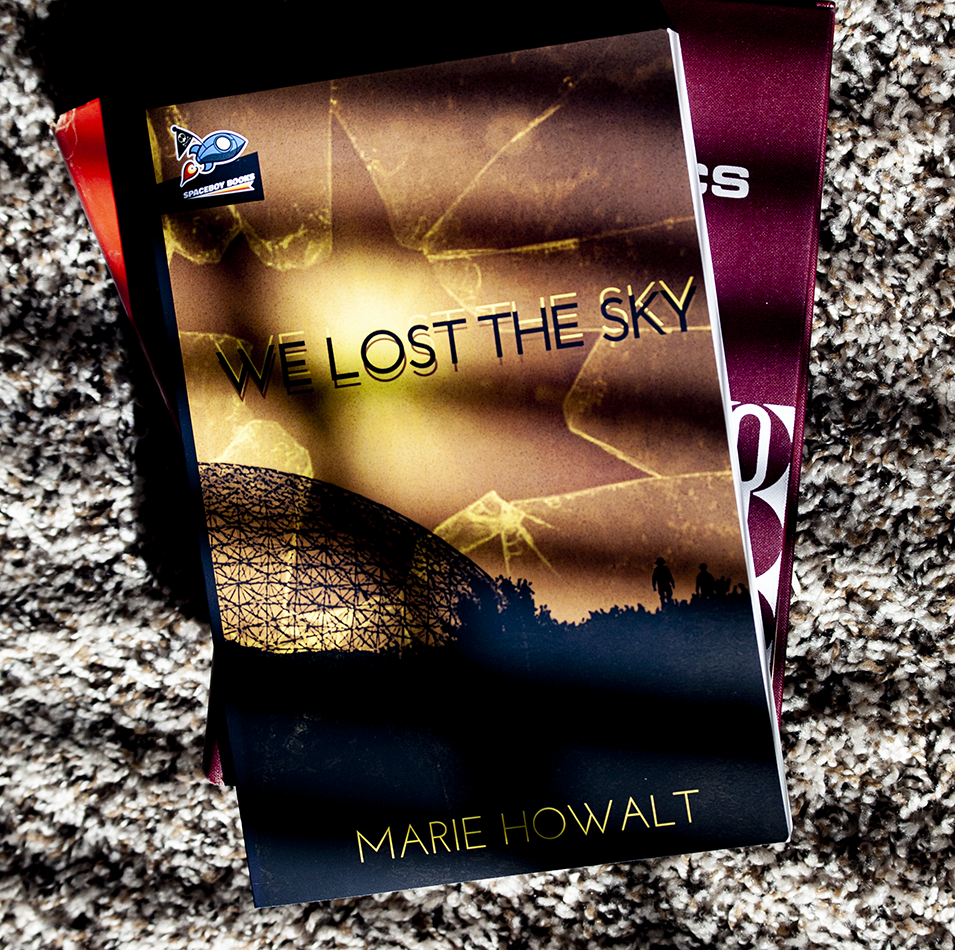
It is unfortunate, but hope can only go so far. Hope can provide us the groundwork for a great future, but we eventually have to take some action to build a path forward. Otherwise, there’s always someone willing to crush a hope to fulfill their own dream.
The Moonless trilogy makes me think of hope. Of the dangers of relying on hope. And on the greatness that results from direct action. This is a book series that represents that conflict repeatedly: hope versus action. Desire versus commitment. I see it from the first pages of We Lost the Sky: “He studied the expanse for any sign of humans. And there, so far away that he had to squint to be certain, was a flicker of light.” Renn, a primary protagonist in the series, is always looking for that next bright spot on the horizon. All of these characters are—Luca, Renn, Teo, and the rest—they’re Seeking Shelter despite being in the Heart of the Storm.
Closing out this trilogy, Heart of the Storm feels especially solid and cohesive in those narrative echoes of hope and action. We Lost the Sky set the stage and gave our heroes their first chance to act to chase a dream. Seeking Shelter showed us that even the best dreams take responsive leadership in the face of a crisis. Now, Heart of the Storm is about the need for community to protect dreams for a brighter future. The hope is never enough. The dream is never enough. All the right people can be in all the right places, but they still have to act together to be effective.

Picking up some time after the events of Seeking Shelter, Heart of the Storm introduces two new viewpoints, Domenico and Huan, while retaining the core cast. If you’ve read the previous books, there’s a ready rhythm in returning to Howalt’s writing that felt like taking a seat at a comfortable café. Their work always gives a sense of distinct calm; the story unfolds with quiet surety and at a steady pace. That hasn’t changed with HotS, and it was also a pleasure to rejoin this set of characters. I really enjoy Renn and Luca in particular. They feel like the heart of the entire trilogy.
In book one, Teo, Luca, and Renn helped found the new settlement of Siena. In book two, there was a plague that made the settlement seek aid outside of its walls and existing relationships. Now, book three sees the Sienans defending themselves against the long-growing shadow of Florence. The moonless world seems especially harsh in this part of the story, but not because of its physical setting. If anything, there were some real moments of beauty out on the desolate plains of a ruined Italy. But, perhaps it is the state of Earth present, but many of the fears and struggles faced by the Sienans felt especially dire and relatable.
Driven by fear, attacks from Florence threaten the lives of people that just want to live better and with more togetherness. Restless uncertainty sends Renn and Luca on a path that is more familiar rather than the one that requires a leap of faith. Teo and Arsenio face the regret of taking action while trying to find joy amidst pain and problems. These could be excerpts from the mid-pandemic world of this book’s release.
And, much like the chaos of reality, it takes a lot of steady hands and cool heads to save the day. It takes quick thinking and honed tempers to find solutions that minimize pain and death. In the previous books, I enjoyed the sense of pacifism presented by the heroes. I truly believe in an ideal of nonviolent action to achieve our goals. In We Lost the Sky, the group sought out Siena as a third option in the face of fighting over a city. For Seeking Shelter, everyone banded together to help; in the end, bartering skills and shared service won the day. Unfortunately, not all problems can be solved through talk or trade.
In a way, the settlement of Siena grows like any human in this series. First, it drew a breath. Then, it learned to walk by coordinating the efforts of its body. Finally, it faced the harshness of external pressures and had to understand itself to remain autonomous. Critically, it is only because of external pressures that the township has to redefine its limits. It is only because of outside pressures that Renn grows wistful. It’s external influences that make Teo doubt. And, it’s the external that forces Luca to finally throw all in with the Sienans.
Of course, growing up is painful, and I felt a familiar pang of regret at the end of this story. Yes, I’m a little saddened that its the last of the series. This series is a comfort read. It’s calming and reassuring to have realistic characters acting sensibly in the midst of disaster. However, the other regret is that Siena had to change in the ways it did. It’s painful to recognize the nature of conflict. It’s somber to realize that humanity is so often inhuman.
Heart of the Storm was a lovely book, and it wraps up the trilogy in a lot of great ways without any tidy neatness in the ending. It’s a living world that feels like its characters will go on living. I have an almost nostalgic fondness for this series in that it feels like it’s from another time. It provides an escape from this world, and what else can you ask for from a book?
Available from Spaceboy Books, Heart of the Storm is by Marie Howalt with a release date of 2021-09-25. Marie Howalt was born and raised in a small North European kingdom called Denmark and decided to become a writer at the age of 11 when the local library ran out of science fiction and fantasy to gobble up.


